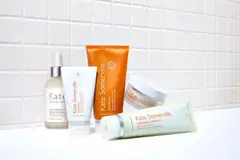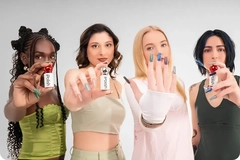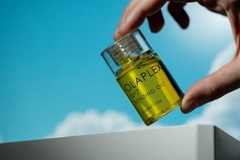Unilever sells Kate Somerville to Rare Beauty Brands
Key takeaways
- Unilever sold Kate Somerville to Rare Beauty Brands as part of a strategic brand repositioning.
- Rare Beauty Brands aims to continue Kate Somerville’s growth with its experience in skin care.
- Unilever is re-aligning its broader portfolio strategy with the recent launch of SASSY.

Unilever has announced the sale of Kate Somerville to Rare Beauty Brands. The Kate Somerville brand includes skin care, body care, and a clinic in Los Angeles, US.
The sale comes after Unilever Prestige conducted an 18-month turnaround effort to stabilize and reposition the brand’s performance.
Mary Carmen Gasco-Buisson, CEO of Unilever Prestige, says: “As the brand enters a new chapter, we believe that its continued growth and success will be best supported by new ownership better aligned to its evolving needs.”
Rare Beauty Brands owns skin care brands such as Patchology, Dr. Dana, and Dot Dot Dash.
Chris Hobson, president and CEO of Rare Beauty Brands, adds: “The acquisition of Kate Somerville is a significant milestone for Rare Beauty Brands. We have long admired the brand’s innovative spirit and its commitment to results-driven skin care, which aligns perfectly with our mission to create products that delight, communities that empower, and brands that inspire.”
“We believe that Rare Beauty Brands is the ideal home for the Kate Somerville brand. Together, we see a bright future ahead, with new opportunities to grow and reach even more consumers who share our passion for highly efficacious, luxurious skin care.”
PricewaterhouseCoopers Corporate Finance is the exclusive financial advisor to Unilever on the sale of Kate Somerville Skincare. The transaction is expected to close in Q4 of 2025, subject to regulatory approvals.
Unilever’s business moves
Recently, Unilever launched a marketing framework titled SASSY as part of a broader strategy to “premiumize” everyday brands. Esi Eggleston Bracey, chief growth and marketing officer at Unilever, told Personal Care Insights that the company was building “Desire at Scale” — a strategy that makes emotional connection accessible to the many, not just the few. “It’s about creating a non-conscious pull,” she said.
The latest sale is among many portfolio adjustments the FMCG company has conducted this year.
In April, Unilever acquired the digital native personal care brand Wild, known for its refillable deodorant packaging. A month later, it announced the closure of its skin care brand REN, citing “a combination of internal factors, compounded by market challenges in recent years.”
Another month passed, and Unilever signed a deal to acquire men’s personal care brand Dr. Squatch from Summit Partners to expand its men’s care portfolio. Dr. Squatch’s products include natural body washes and soaps, hair care, skin care, deodorants, and other products for men’s grooming.













